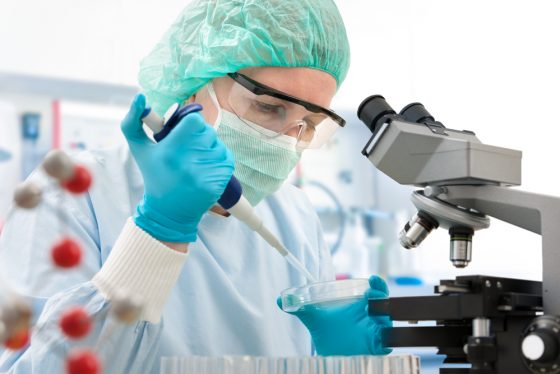Radboud research offers new hope to MS sufferers, identifies key genes


Scientists at Radboud University teaching hospital in Nijmegen say they have discovered multiple dna variants which indicate an increased risk of developing Muscular Sclerosis.
The discovery will allow researchers to carry out more targeted research into the disease, according to MS charity Nationaal MS Fonds. MS is a disease of the central nervous system that disrupts the flow of information within the brain, and between the brain and body.
The most important of the Radboud discoveries focuses on the MBP gene, which produces a protein that forms a protective layer around the nerves. In MS patients, antibodies stop the protein being made, leaving the nerve unprotected.
This, in turn, leaves the nerves unable to send signals to the brain, leading to paralysis.
The scientists now want to use MS sufferers’ skin cells to grow stem and nerve cells to look for new remedies.
‘We want to use some of the genes which have been found in a functional study to test at cell level how the genetic defects work,’ research association Geert Poelmans said. ‘The results of this follow-up research will focus on developing long-term new treatments to counteract MS’
Scientists believe that a combination of environmental and genetic factors contribute to the risk of developing MS. Some 17,000 people in the Netherlands currently have MS, with 800 new cases being diagnosed every year.
The new discoveries were made comparing the dna of MS sufferers and their healthy family members.
Thank you for donating to DutchNews.nl.
We could not provide the Dutch News service, and keep it free of charge, without the generous support of our readers. Your donations allow us to report on issues you tell us matter, and provide you with a summary of the most important Dutch news each day.
Make a donation